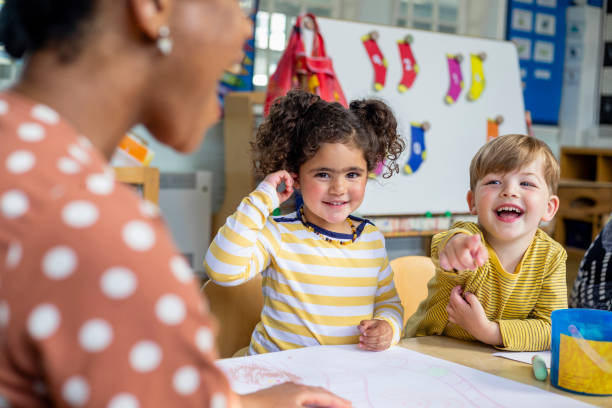
In the world of early childhood education, it’s easy to focus on flashy activities, colorful crafts, and structured lessons. But seasoned educators and child development experts know that some of the most powerful learning happens during the simplest parts of a child’s day.
Nursery schools are uniquely positioned to transform the ordinary—snack time, putting on shoes, tidying up—into extraordinary opportunities for growth.
It’s not just about teaching the alphabet or counting to ten; it’s about nurturing independence, emotional intelligence, problem-solving, and communication. Across the UK, particularly in places like nurseries in Hampshire, educators are tapping into the richness of daily routines to instil meaningful learning from the moment a child walks through the door.
The Power of Repetition and Predictability
Young children thrive on consistency. Regular routines provide them with a sense of security and help them understand the sequence of daily life. When they know what to expect—whether it’s morning circle time or washing hands before lunch—they feel more confident and in control of their environment.
Within these predictable patterns lie hidden learning opportunities. For example, cleaning up toys isn’t just a chore—it teaches responsibility, categorisation (grouping blocks together or sorting crayons), and even early numeracy when children count items or match colors. Transition times become lessons in time management and self-regulation.
Language Development in Everyday Conversation
Routine interactions during the day also present countless chances to build vocabulary and comprehension. Greeting teachers and peers, asking for help, or narrating actions during play all reinforce language acquisition. Nursery staff intentionally engage children in conversation, asking open-ended questions and encouraging them to describe what they see, think, and feel.
Even something as simple as putting on a coat can prompt a discussion about weather, body parts, textures, or colors. These seemingly small exchanges, repeated over time, contribute significantly to language confidence and cognitive growth.
Social Skills Through Shared Tasks
Many essential life skills are learned by doing—and doing together. Routines like snack preparation or setting the table promote turn-taking, cooperation, and negotiation. Children learn to wait patiently, express preferences respectfully, and help one another—all key components of social and emotional development.
At a nursery hampshire educators often weave social learning into daily activities, helping children understand how to work as a group, show empathy, and navigate conflict gently. These are the foundational skills that support later academic success and interpersonal relationships.
Building Independence One Step at a Time
Self-care routines such as toileting, dressing, and packing away belongings empower children to take ownership of their actions. These everyday tasks help develop fine and gross motor skills, attention to detail, and perseverance.
In a nurturing nursery setting, children are guided—rather than rushed—through these routines. With patience and encouragement, they build confidence in their abilities, which leads to a growing sense of autonomy. What might seem like a mundane task to an adult can be a moment of triumph for a young learner.
Embedding Learning in Real Life
The best nursery schools know that learning doesn’t always require a worksheet or flashcards. Real-life contexts are incredibly effective for teaching basic concepts. Counting apple slices during snack time, comparing the size of shoes, or observing the shadows in the playground—all these experiences introduce mathematical, scientific, and critical thinking skills in a natural and engaging way.
This immersive learning style—where education is lived rather than taught—helps children understand that knowledge is everywhere and that curiosity is a valuable part of everyday life.
Conclusion: Learning That Lasts
Magic truly happens in the mundane when early years educators are intentional, patient, and imaginative. Nursery schools that embrace the rhythm of daily routines unlock countless learning moments that stick with children long after the school day ends.
By treating each part of the day as a teachable moment, nurseries in Hampshire demonstrate that growth and development don’t need to be flashy—they need to be meaningful. These simple, everyday experiences create confident, capable, and curious children, well-prepared for a lifetime of learning.
Read More :- Why? How? What If? — Turning Curiosity into Confidence in Primary Schools